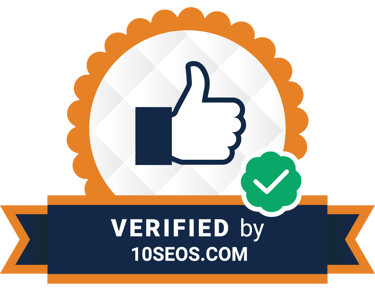Master Local SEO: A Step-by-Step Guide to Analyzing Your Competitors and Winning the Market!
Are you a digital marketing agency looking to dominate local search results for your clients? Understanding your competition is crucial. This guide provides a step-by-step approach to local SEO competitor analysis, empowering you to outrank the competition and deliver exceptional results.
Vinay Jain
12/25/20243 min read


Why Local SEO Competitor Analysis Matters
In the competitive digital landscape, knowing what your rivals are doing is essential. Local SEO competitor analysis helps you:
Identify Opportunities: Discover untapped keywords and content ideas.
Refine Your Strategy: Learn what's working (and what's not) for others in your niche.
Improve Your Rankings: Optimize your website and content to outperform the competition.
Deliver Better Results for Clients: Provide data-driven strategies that drive local traffic and conversions.
A Step-by-Step Guide to Local SEO Competitor Analysis
Here’s a practical approach to analyzing your local SEO competitors:
1. Identify Your Local Competitors
Start by identifying who you're up against. Don't just focus on obvious competitors; consider those ranking for relevant local keywords. Use these methods:
Google Search: Search for relevant keywords your clients target. The top-ranking results are your primary competitors. Use variations of keywords to uncover more competitors. For example, if your client is a plumber in Austin, search for "plumber Austin," "emergency plumber Austin," "24/7 plumbing repair Austin," etc.
Google Maps: Search for your client's business category in Google Maps. The businesses listed in the "local pack" are key competitors.
Local Directories: Check online directories like Yelp, Yellow Pages, and industry-specific directories to identify local businesses in the same niche.
2. Analyze On-Page Optimization
Examine your competitors' websites to understand their on-page SEO strategies:
Keywords: What keywords are they targeting in their title tags, meta descriptions, headings, and content? Use tools like Semrush or Ahrefs to analyze their keyword rankings.
Content Quality: How comprehensive and engaging is their content? Do they provide valuable information to users?
Website Structure: Is their website easy to navigate? Is it mobile-friendly?
Google Business Profile (GBP): Is their GBP profile complete and optimized? Do they have consistent NAP (Name, Address, Phone number) information across the web? This is crucial for local SEO.
3. Analyze Off-Page Optimization
Off-page SEO focuses on building authority and trust. Analyze these aspects:
Backlinks: Where are they getting their backlinks from? Use tools like Ahrefs or Moz to analyze their backlink profiles. Look for high-quality, relevant backlinks from local directories, industry websites, and other authoritative sources.
Local Citations: Are they listed in relevant local directories and business listings? Consistent NAP information across these citations is vital.
Online Reviews: What are people saying about them online? Positive reviews on Google, Yelp, and other platforms can significantly impact local rankings.
4.Analyze Local Citations and NAP Consistency
Local citations are mentions of your client’s business name, address, and phone number (NAP) on other websites. Consistent NAP information across the web is crucial for local SEO. Use tools like BrightLocal or Whitespark to analyze your competitors’ citations and identify opportunities for your clients.
5. Track Keyword Rankings
Monitor your competitors' keyword rankings over time. This will help you understand their SEO progress and identify any changes in their strategy. Use rank tracking tools like Semrush, Ahrefs, or Ranktracker.
6. Leverage Your Findings
Use the insights you've gathered to improve your clients' local SEO strategies:
Optimize On-Page Elements: Improve title tags, meta descriptions, headings, and content based on your competitors' successful strategies.
Build High-Quality Backlinks: Focus on acquiring backlinks from authoritative and relevant local sources.
Improve Local Citations: Ensure consistent NAP information across all online directories and business listings.
Encourage Online Reviews: Encourage satisfied customers to leave positive reviews on Google and other platforms.
Create High-Quality Content: Develop informative and engaging content that targets relevant local keywords and provides value to users.
Tools for Local SEO Competitor Analysis
Semrush: Comprehensive SEO toolkit with keyword research, competitor analysis, rank tracking, and site audit features.
Ahrefs: Powerful backlink analysis and SEO tool with keyword research and competitor analysis features.
Moz Local: Citation management and local SEO tool.
BrightLocal: Local SEO platform with citation management, rank tracking, and reputation management features.
Whitespark: Local citation finder and building tool.
Google Search Console: Free tool from Google that provides insights into your website's performance in search results.
Google Maps: Essential for identifying local competitors and analyzing their Google Business Profiles.
Implementing all these strategies can be resource-intensive. Partnering with a provider of white-label SEO services can free up your time and resources, allowing you to focus on client relationships and business growth.
Conclusion
Local SEO competitor analysis is an ongoing process. Regularly monitoring your competitors and adapting your strategies is essential for staying ahead of the curve and delivering exceptional results for your clients. By following these steps and using the right tools, you can master local SEO and help your clients win the local market. As a white label SEO provider, Skyline Digital Lab can empower your agency to provide these services seamlessly.
Contact us to learn more.
Skyline Digital Lab
Empowering businesses with impactful digital solutions.
White Label Services
+91-8871333442
© 2025 All rights reserved.
PPC
Social Media Marketing
Web Design & Development
Address
Jabalpur, M.P. India.







